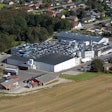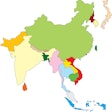The United States and South Korea reached an agreement Dec. 3 that allows the Obama administration to sidestep any changes in beef trade policy with South Korea, instead focusing on and getting some concessions on auto tariffs from the South Koreans. The agreement sets the stage for both the U.S. and Korean legislature to approve the changes at some point in 2011, with the agreement expected to go into effect in July 2011.
Under special rules for free trade agreements meant to assure a quick vote, Senate Finance Chairman Max Baucus (D-Mont.) and incoming House Ways and Means Committee Chairman Dave Camp (R-Mich.) will write the legislation to implement the deal, and no amendments will be allowed on the floor.
The announcement came after U.S. and Korean trade officials spent several days recently negotiating over access to the Korean market for U.S.-based automakers. South Korea is America's seventh-largest trading partner.
President Obama said the "landmark" deal is expected to increase annual exports of American goods by up to $11 billion and support at least 70,000 American jobs. He said he looks forward to "working with Congress and leaders in both parties to get this done." Two-way trade between the two countries amounted to $69 billion last year.
Finance Chairman Baucus, who may face a tough reelection battle in 2014, said the changes failed to address his concerns about U.S. beef producers' access to the Korean market. South Korea continues to limit American imports to beef from cattle under 30 months old, a restriction that Baucus and other U.S. officials consider unreasonable because no mad cow disease in humans has been attributed to American beef. Baucus said he "reserved judgment" on the pact.
"I am deeply committed to righting this wrong and will work with the administration in the period ahead to ensure that America's ranchers and farmers are not left behind," he said in a statement. "I am deeply disappointed that today's deal fails to address Korea's significant barriers to American beef exports," he added.
In what is seen as a plus for U.S. farm producers, the agreement would provide for a decline in Korea's tariffs on commodities such as citrus, at least at certain times of the year. The provision is similar to those the United States has with Central and South American growers who supply the U.S. market with crops such as tomatoes and grapes during the U.S. winter months.
And, while some U.S. beef interests may not be happy at this juncture, U.S. pork interests are pleased even though South Korea was given an additional two years — until Jan. 1, 2016 — to eliminate duties on some U.S. pork products. This would be six months before European pork producers will benefit from an EU-South Korea FTA that slashes tariffs on EU pork imports.
Once the deal is in place, U.S. pork and beef exports to South Korea could increase by $2 billion per year, according to American Meat Institute estimates.


.jpg?auto=format%2Ccompress&fit=crop&h=167&q=70&w=250)















